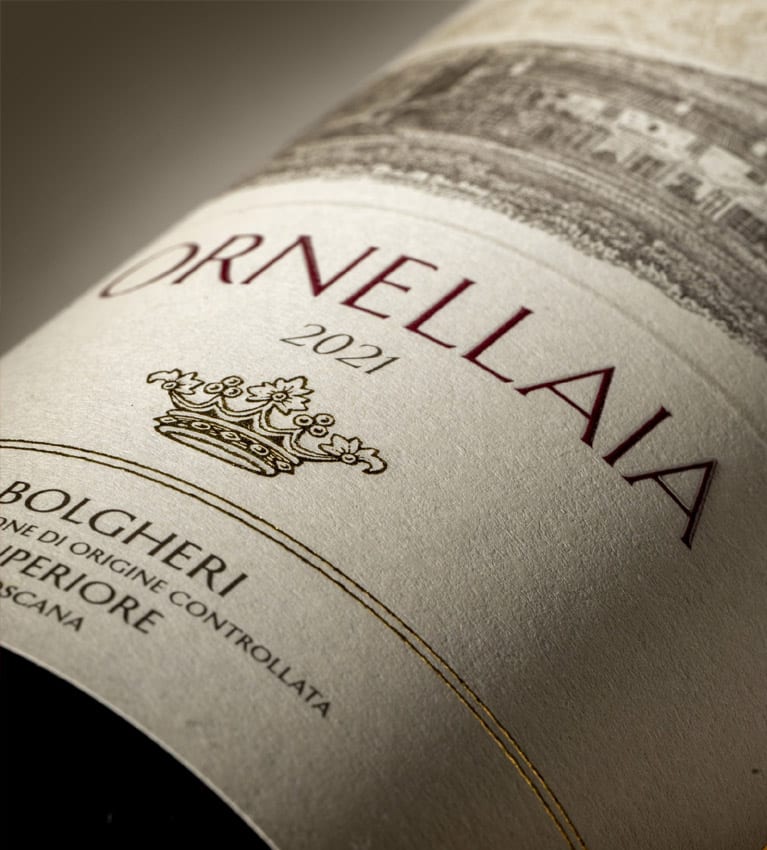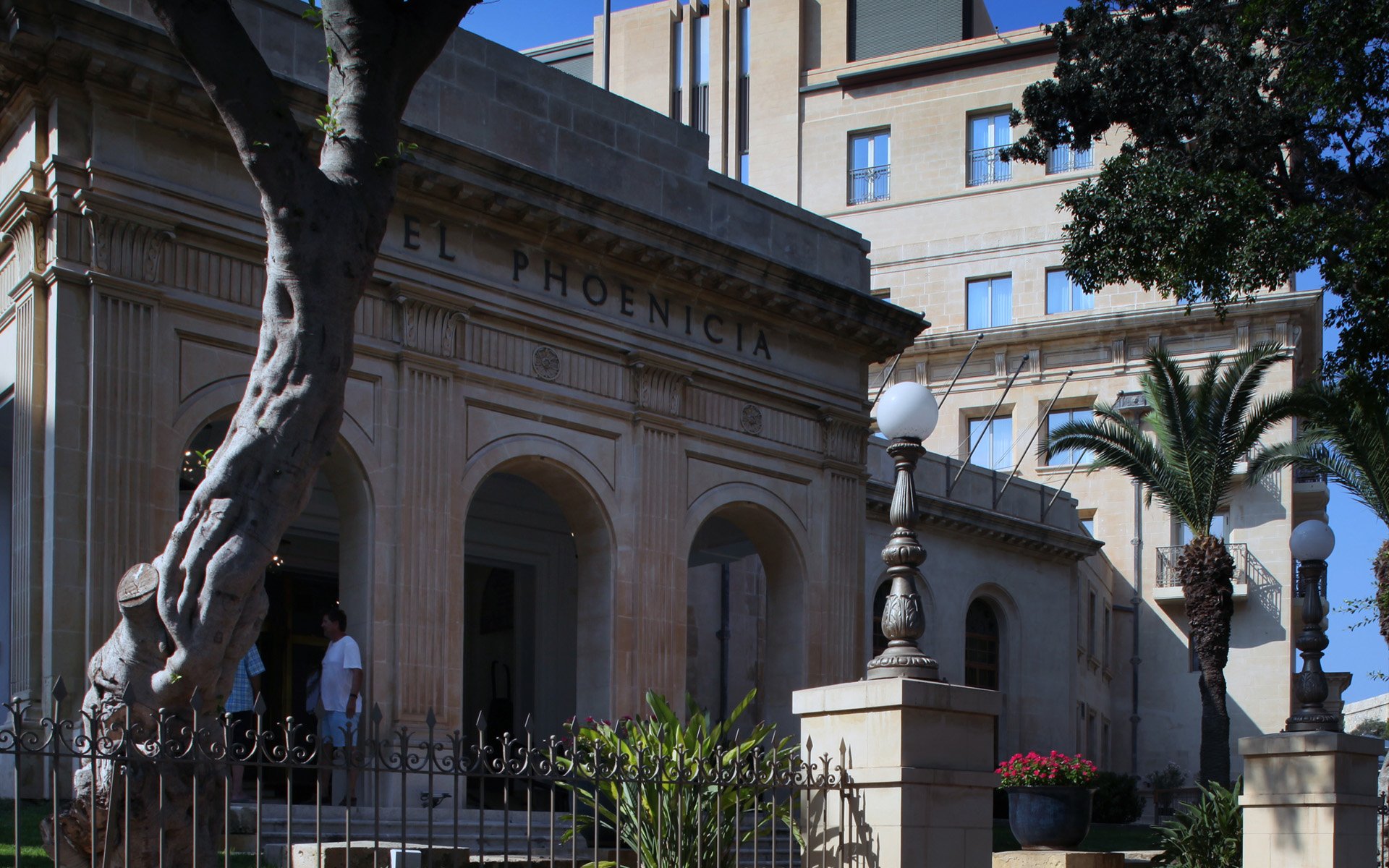
Hospitality Architecture
November 20, 2021

The Show Must Go On
November 20, 2021
The Uncertainty of Service Staff and Recruitment Issues in the Hospitality Industry
November 21, 2021AP Valletta is thirty years old this year. Can
you give us an overview of the firm’s start in
1991 up to its position today?
We started in 1991 with the name Architecture Project, a manifesto in the Modernist tradition declaring the urgent need for a project to give new energy to Maltese architecture. At that moment in history, though, Modernism was on its last legs and the isolation of the island started to become a thing of the past. So, while Architecture Project, or AP, began to contribute to the awareness of Architecture which began to flourish again on the island, the context of the original mission was transformed irreversibly.
AP has always been prepared for change, and has remained, as a result, fresh and catchy, albeit more ambiguous. ‘The idea of Valletta’ is a central tenet of the story of AP. Valletta as a Renaissance City is an important example of the Architect’s role in designing the ‘Ideal City’ – a city concerned with lasting beauty and functionality, to be enjoyed by all.
As a practice we are eager to persevere in this endeavour to (re)develop the model of a Renaissance City into a Model City of the Future, with Valletta as a laboratory for new ideas. With this project in mind, it is fitting that in 2018 we decided to connect the name ‘Architecture Project’ or ‘AP’ directly with that of the city, officially becoming AP Valletta.
We started in 1991 with the name Architecture Project, a manifesto in the Modernist tradition declaring the urgent need for a project to give new energy to Maltese architecture. At that moment in history, though, Modernism was on its last legs and the isolation of the island started to become a thing of the past. So, while Architecture Project, or AP, began to contribute to the awareness of Architecture which began to flourish again on the island, the context of the original mission was transformed irreversibly.
AP has always been prepared for change, and has remained, as a result, fresh and catchy, albeit more ambiguous. ‘The idea of Valletta’ is a central tenet of the story of AP. Valletta as a Renaissance City is an important example of the Architect’s role in designing the ‘Ideal City’ – a city concerned with lasting beauty and functionality, to be enjoyed by all.
As a practice we are eager to persevere in this endeavour to (re)develop the model of a Renaissance City into a Model City of the Future, with Valletta as a laboratory for new ideas. With this project in mind, it is fitting that in 2018 we decided to connect the name ‘Architecture Project’ or ‘AP’ directly with that of the city, officially becoming AP Valletta.
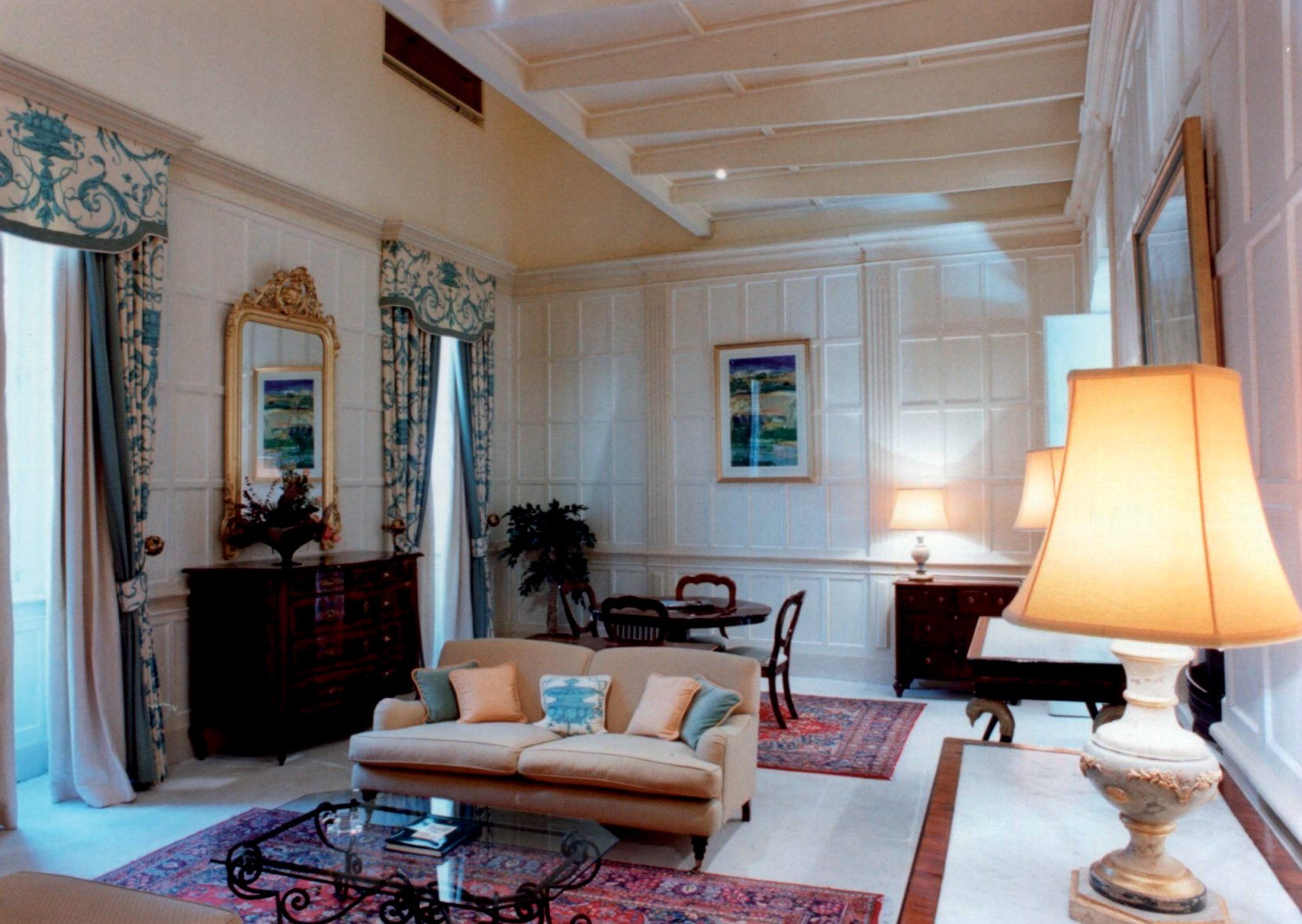
Can you mention some past and present projects related to Hospitality, locally and abroad.
Over the past 30 years we had the privilege to work on some of the most spectacular hospitality sites on the Island, from Xara Palace in the late 90s to the iconic Hotel Phoenicia which is still ongoing. The restoration of the historic building in Mdina deals primarily with the refurbishment of the historic building to create a charming hotel with seventeen suites overlooking both the Maltese rural and urban landscape. Similarly, working on the Phoenicia Hotel was a great challenge for us, especially due to the importance of the historic fabric characterising the building.
The project was approached in a holistic manner: the brief aimed indeed at the insertion of this 1930s hotel within the rehabilitation project for the area spanning between City Gate, the ex-bus terminus and the Floriana ex-parade ground. It included the restoration of the facades, the renewal of the back-of-house, the provision of new terraces on the roof of a new wing housing the spa and the requalification of the surrounding gardens and pool area, creating a contemporary experience that pays tribute to both the art déco structure and the 16th century fortifications.
The extension of the stair towers on the facades and the creation of a copper cornice to unify the 1990s additions, whose frontispieces and roof structures were replaced with sky suites, form part of an overall masterplan that envisages the requalification of the hotel’s grounds. This includes a new pool area that restores the legibility of the hotel’s original architecture while drawing the curtain back on the greater city context.
An infinity edge blurs the boundary between the pool and the sea beyond, and shallow steps running along the whole length of the pool create the effect of a beach at the foot of the bastions.
AP Valletta’s vision statement is to “create architecture that is a place-maker, a container of meaning, a catalyst for the creation of kinship, a fabricator of myth and a producer of narratives.” Tell us how these aspects are kept in mind when designing a hotel, from the general aesthetics to guests’ experience.
We see our mission as similar to that of the alchemist whose erstwhile research was aimed at converting lead into gold. Like any other human activity, the ingredients of Architecture are often restrictive and mundane, but our goal is to combine them in such a way that the end result is lifted out of the basic sphere, provides continuity with the valuable Architecture of the past and is invested with the quality of timelessness. We apply the same philosophy to all our projects, including hospitality.
Indeed, when we worked on the restoration of the Hotel Phoenicia and its Spa we aimed at creating an architectural language which stems from the re-interpretation of the Art Deco style of the main building, and it results in a clean repetition of patterns and a distinct linearity, gently promoting the contemporary nature of the intervention. Also, structurally, the complex took on some inconceivable challenges as the presence of large historic ruins was discovered during construction.
We chose a neutral, pastel and natural palette that resonates throughout the materiality and creates a homogenous sculptural effect. In this way its emergence from a fortified pre-existent base is enhanced and projected into a timeless dimension. We also attributed significant importance to sustainability principles.
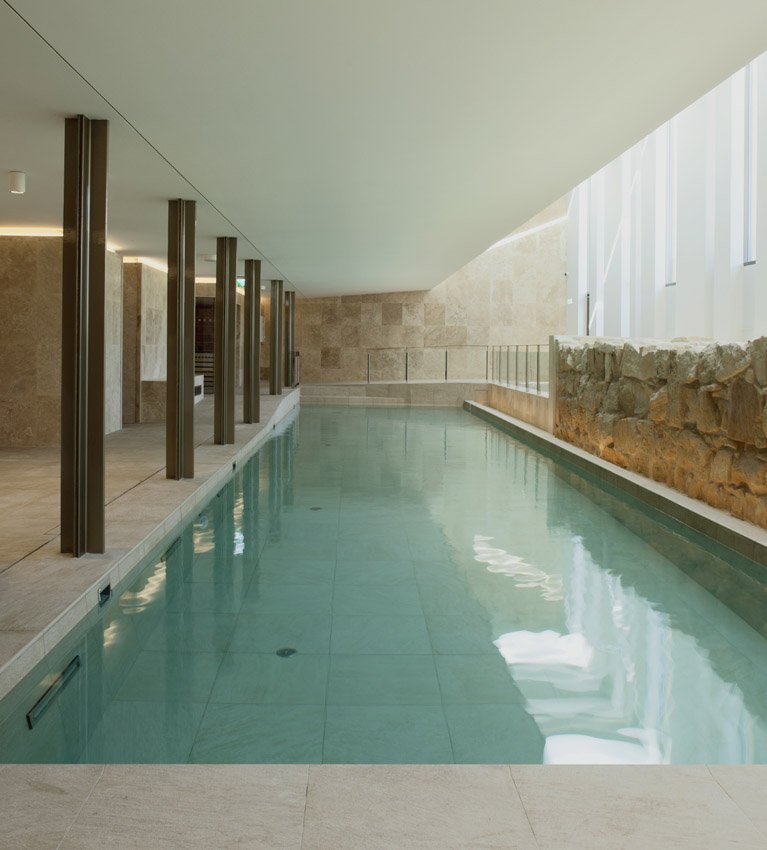

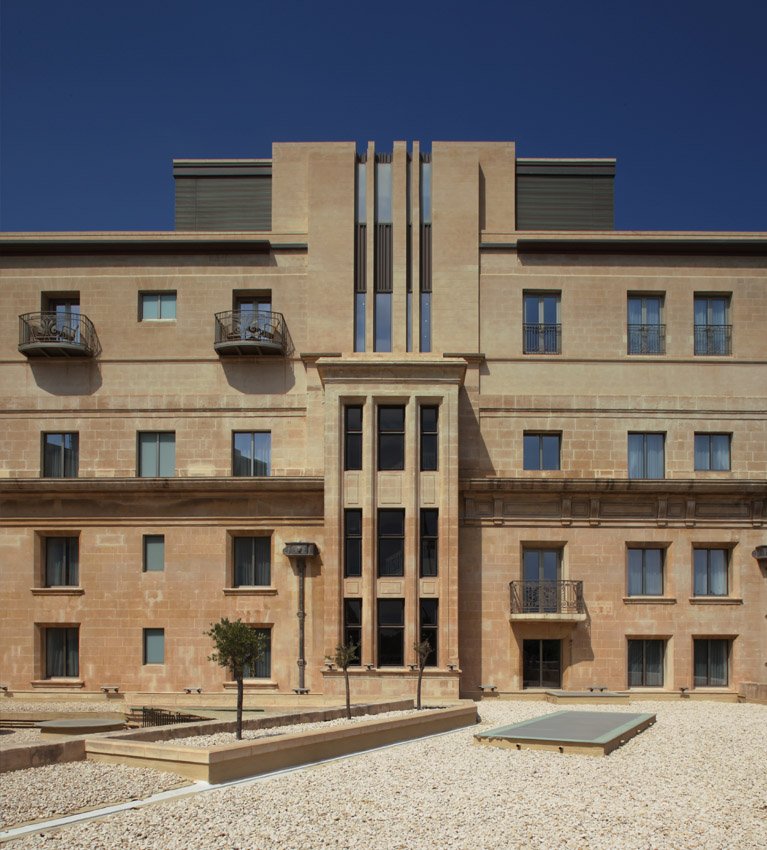
Figures from the 2017 Hotel Global Decarbonisation Report have indicated that hotels will need to reduce greenhouse gas emissions per room, per year by 66% from 2010 levels by 2030, and 90% by 2050 to align with the Paris Climate Agreement. Reducing the environmental impact and making hotels self-sustainable is nowadays considered to be a key issue, particularly for the growing number of eco-conscious consumers. What is AP Valletta’ strategy in this regard?
As an architecture firm, we have always had environmental considerations and circularity at the core of our projects, always opting for an active approach to the matter. Recently AP Valletta signed an agreement with the Malta Chamber of Commerce to cooperate on an extensive research project, ‘Building Futures’, which will explore how design, together with research, educational and economic measures can shape the future of the built and unbuilt environment in Malta.
We strongly believe that circular economy is more about the mindset and the approach. Everything will change when we understand that everything is connected, as a domino effect — design, quality, aesthetic, education, environment, culture. Nowadays there is an abuse of the word ‘sustainability’ — people tend to use it without knowing what it really means and entails.
In the case of the Phoenicia Spa, the design considerations were combined with sustainability principles, of which the most tangible outcome is the installation of a green roof on the extension, providing the structure with an alternative cooling system and therefore making it very energy efficient. During the process, we also approached international experts to achieve the ultimate objectives in the best possible way.
COVID has brought about the need to create a ‘smart’ hotel room with several new design implementation. These include contactless and touchless room controls, keyless room entry, pop-up dining areas and robotic servers, among others. What is the long term validity of these measures post-pandemic?
Society nowadays needs to be re-educated in order to understand the consequences of our pre-covid behaviour. As a result, measures would have to be put into place to maintain and improve the amenities of our hospitality offer order to avoid the spread of the virus. Little do we know about the post pandemic future; however, it is highly predictable that technology will play an even higher role for the future of hospitality too, with a focus on maintaining environments safe both for the workers and guests.
Moving forward, what do you consider to be the main opportunities and challenges facing the Hospitality Architecture industry?
Reevaluating our parameters of aesthetics and materiality is one of the greatest challenges of the construction industry in Malta. We know that the building industry contributes heavily to CO2 emissions and we cannot leave it only in the hands of individuals to make the necessary choices, but rather to policy makers who need to re-interpret the abovementioned parameters and to provide tangible and adoptable solutions for the long term.
As an office, we are currently exploring new and innovative materials and more eco-friendly ways to design and construct. In this respect, we strongly believe hospitality would be one of the best industries to explore these new trends. It would be fascinating to see how trends related to modes and periods of travel have changed as a result of the pandemic. This will clearly have an influence on the hospitality of tomorrow and might generate new typologies of buildings to accommodate the novel forms of tourism.

Click here to see Horeca Issue 6 online


